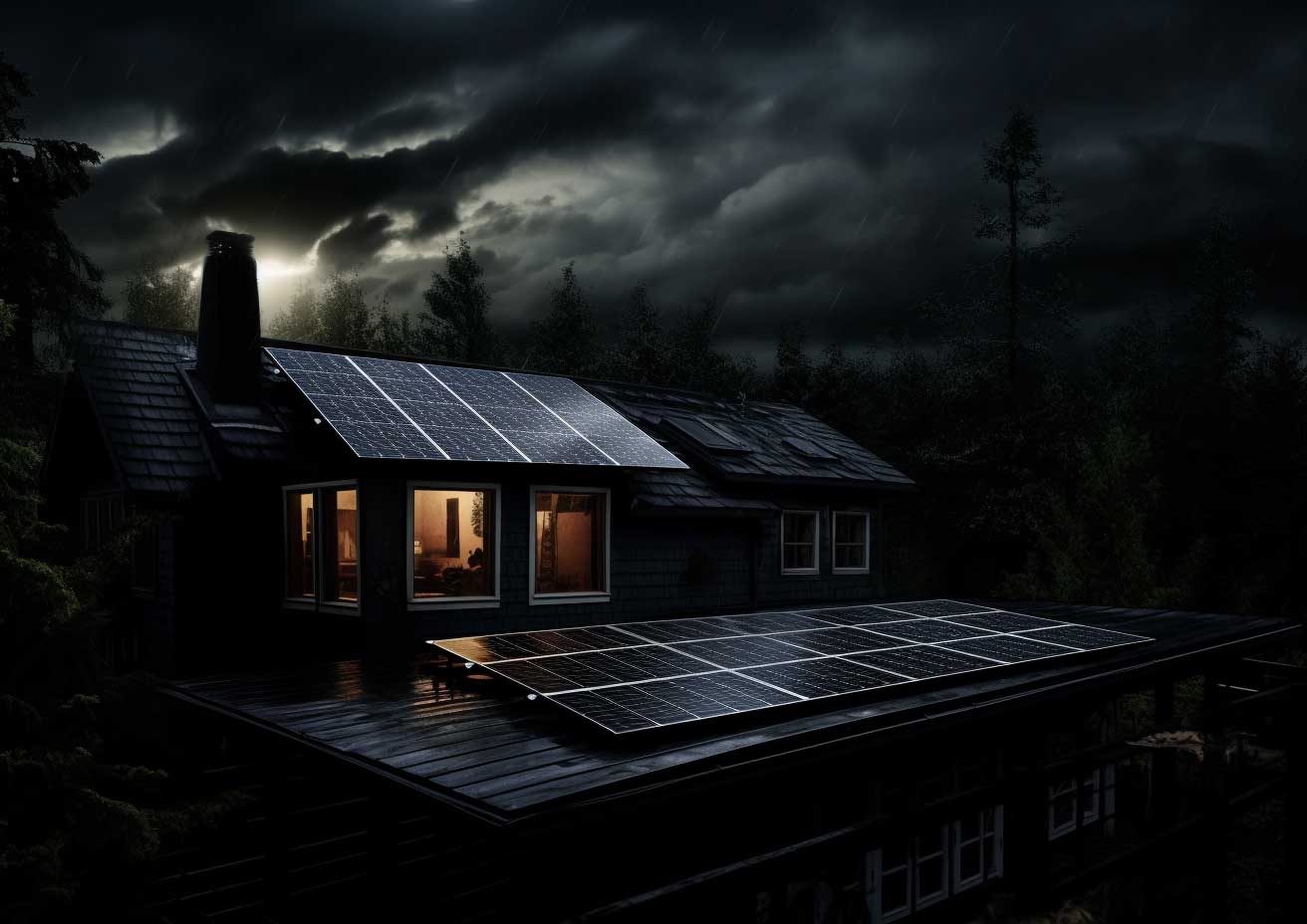Solar panels are a valuable addition to any home, and they have the potential to increase property value significantly. Multiple studies have shown that homes equipped with solar panels tend to sell for more than comparable homes without a solar energy system.
As solar power becomes increasingly important to homebuyers, properties with solar panel system becomes more desirable and therefore more valuable. In this comprehensive article, we will embark on a journey to unravel the captivating realm of solar panels and their transformative impact on your property value. From the astounding financial benefits they offer homeowners to the enduring allure for those in pursuit of a solar-powered dream home, this guide will illuminate the path toward a more sustainable and prosperous future.
Whether you are a homeowner or home buyer contemplating the installation of solar panels on your cherished abode, this definitive resource will cast a radiant beam on the subject, demystifying the intricate dynamics at play. So, let us embark on this enlightening exploration on how do solar panels increase home value.
Understanding How Can Solar Panels Increase Home Value
The demand for solar panels is rapidly rising as more environmentally conscious homebuyers seek cost savings, and this growing demand is significantly boosting the value of homes with solar panel installations. However, the extent of this increase depends on various factors such as location and the quality of the solar panel installation.
Data from Zillow in 2019 supports these findings, showing an average increase in home value of 4.1% for properties equipped with solar panels. For example, a home valued at $300,000 could potentially see a surge of up to $12,300 with the installation of solar panels. This demonstrates the significant impact that solar energy systems can have on property value.
Installing solar panels not only reduces energy costs and the electricity bill but also aligns with the growing demand for renewable energy. As fossil fuel prices continue to fluctuate, homeowners with solar panels have the advantage of stable and clean energy. Additionally, government incentives such as tax credits and net metering programs further boost the financial benefits of a solar panel system.
When compared to comparable homes without solar panels, a property with solar panels can stand out to potential buyers who value energy efficiency and sustainability. This can give the home a competitive edge in the real estate market, attracting more interested buyers and potentially resulting in a higher selling price. In areas with high electricity rates or strong solar incentives like San Francisco or San Diego, the value increase from installing solar panels may be even more significant due to higher energy rates.
Financial Benefits of Installing Solar Panels
Reduction in Energy Bills
Installing solar panels can have a significant impact on reducing energy bills for homeowners. On average, households in the U.S. spend around $125 per month on energy bills. According to Forbes, by opting for a solar panel system that can fully cover their energy usage, homeowners can potentially save up to $1,500 per year.
While the immediate savings on the first power bill after installation are apparent, the true benefits become evident over time as the savings on energy bills offset the upfront costs of the solar panels and installation. However, it is crucial to consider that solar panels typically have a lifespan of 25 to 30 years. This means homeowners can enjoy 17 to 22 years of ongoing energy cost savings, even without accounting for potential rises in energy prices. With an estimated annual savings of $1,500, homeowners can potentially accumulate savings between $25,500 and $33,000 over the life of the solar panel system. The long-term financial benefits are evident, alongside the environmental advantages of relying less on fossil fuels and embracing renewable energy.
Solar Incentives and Tax Credits
The federal residential solar energy credit is a tax credit available for a portion of the expenses incurred by the taxpayer in the acquisition of a solar PV system. It is applicable to the tax year in which the system’s installation is completed. Solar PV systems installed in 2020 and 2021 qualify for a 26% tax credit, while Congress extended this credit to 30% for systems installed from 2022 to 2032. (Systems installed on or before December 31, 2019, were also eligible for the 30% tax credit.)
Subsequently, the credit will reduce to 26% for systems installed in 2033 and further decrease to 22% for systems installed in 2034. Beyond 2034, the tax credit is set to expire unless renewed by Congress. Notably, there is no upper limit on the eligible amount that can be claimed. (It’s important to note that other forms of renewable energy may also be eligible for comparable credits, but these details are beyond the scope of this guidance.) You can also check out the criteria for qualification and more information on the IRS website.
Return on Investment (ROI)
Return on Investment (ROI) is a pivotal consideration for homeowners when contemplating the installation of solar panels. It’s not just about environmental benefits; it’s also a financial decision that can yield significant returns over time. In this section, we will delve into the intricacies of ROI and how partnering with WattLogic can enhance your financial prospects.
WattLogic‘s team is well-versed in the intricacies of solar panel installation and can provide valuable insights into how solar panels may impact your home’s resale value in your specific location. Their expertise can help you make an informed decision about the potential financial gains associated with solar panel installations.
Factors to Consider Before Installing Solar Panels
Initial Cost and Financing Options
As a home buyer, one of the initial costs to consider for installing solar panels on your abode can vary depending on factors such as the size of the system and the location of the property. According to the National Renewable Energy Laboratory, the average cost of residential solar systems in the United States is around $9 per watt. However, this initial cost can be offset by various financing options and incentives available to homeowners.
Another financing option is to lease solar panels from a solar company. Leasing allows homeowners to enjoy the benefits of solar power without the upfront cost of purchasing a system. However, leased solar panels may not have the same impact on property value as owned systems. Some potential buyers may be hesitant to take on a leased solar panel system, as it involves assuming the lease contract and potentially dealing with additional fees or restrictions. Additionally, leased solar panels may not offer the same level of savings and financial benefits as owned systems.
Assessing Property Suitability
When considering how much solar panels increase home value, it is crucial to assess the property’s suitability for solar panel installations. Several factors should be considered, such as sun exposure, shading, roof space, and structural integrity. Evaluating these aspects will determine the feasibility and potential benefits of installing a solar panel system.
Potential Challenges and Maintenance
When considering the potential challenges and maintenance of installing solar panels and how they impact home value, homeowners must first navigate the sometimes complex process of obtaining permits and adhering to regulations. Facilitating permits can be time-consuming and requires a thorough understanding of local building codes and regulations.
Homeowners may encounter obstacles such as zoning restrictions or neighborhood association guidelines that could limit the installation of solar panels. Additionally, navigating regulations and securing necessary permits can involve significant paperwork and communication with local authorities, adding a potential challenge to the process of solar panel installation for your home.
Does Solar Panels Increase Home Value?
In conclusion, solar panels can have a significant positive impact on your home’s value and financial well-being. By reducing energy and utility bill, taking advantage of tax credit and incentives, and carefully considering installation factors, homeowners can make informed decisions for their solar homes. We encourage everyone to explore the benefits of solar power systems, not only for their financial gain but also for the greater good of our planet. Embracing renewable energy is a crucial step in mitigating climate change and ensuring a sustainable future for all.
When navigating the intricacies of solar panel installations, WattLogic stands as your trusted ally. Our team of experts is here to guide you through every step of the process, from assessing the suitability of your property to calculating your return on investment. With our wealth of knowledge and state-of-the-art tools, you’ll have the confidence to make informed decisions that benefit your financial well-being and the environment.
Embrace the solar panel advantage, and together, let’s create a brighter, more prosperous tomorrow. WattLogic is here to illuminate your path toward a greener, more financially rewarding, and environmentally responsible home.




